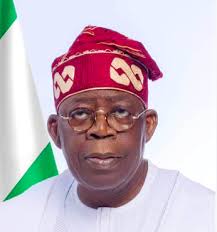

A cheery news emerged from last Monday’s Federal Executive Council meeting,FEC, Presided by President Bola Ahmed Tinubu. It was to the effect that the Federal Government has approved a 10-year Policy framework for Nigeria’s Marine and Blue Economy. The news attracted jubilation from stakeholders who for almost two years since the creation of the ministry have been groping in the dark about the policy direction and framework of the new ministry. For a country which had relied upon a sole commodity as its mainstay, this news couldn’t have come at a better time.
The world bank sees the blue economy as a vital opportunity for sustainable economic growth, improved livelihoods, job creation, while preserving the health of Marine ecosystems. The Blue Economy aligns with the world bank’s goals of reducing poverty and enhancing shared prosperity, advocating for a development approach that balances economic, social and environmental considerations.
The global annual blue economy is worth between 2.3trillion usd and 3trillion usd , with Nigeria’s share estimated at about 296b usd. This new policy therefore is an attempt by the Tinubu administration to lay bare the road map to achieve this milestone . The historic approval of this policy marks an economic and environmental trajectory. An elated Marine and Blue Economy Minister, Adegboyega Oyetola expressed optimism that the policy will lay the foundation for sustainable prosperity for the country. Describing the policy as a visionary framework for national development and that the policy couldn’t have come at a better time. Oyetola said: ‘ This is a defining moment for our nation.
The Federal Executive Council’s endorsement of this visionary policy signals a new dawn for Nigeria’s engagement with the Marine and aquatic resources. This is not just a policy document, it is a bold declaration of intent “, he said. Oyetola explained that the policy was developed through a rigorous inclusive process involving multilevel consultations with critical stakeholders across the country. He underscored the importance of that collaborative approach, noting that it lends both credibility and practicality to the final product. As ambitious as the policy looks, stakeholders have expressed concern about its implementation. Said a shipowner who craved for anonymity: ” Nigeria has never lacked beautiful policies, the problem we have always had is that of implementation. For example, there was jubilation all over the land twenty years ago when the Cabotage regime midwifed the Cabotage Vessel Financing Fund, CVFF, but to imagine that not a dime has been disbursed years after contribution to the fund commenced, is beyond our comprehesion “‘ he said. It is my candid opinion that Minister Oyetola, should without delay, assemble a standing implementation Committee.
Membership of the committee should be drawn from both the private sector and heads of MDAs under the ministry, including the media. This special purpose Vessel should be charged with the responsibility of overseeing the full implementation of the policy . If this is not done, there’s the tendency that not much could be achieved in terms of the policy implementation and direction of this beautiful document.

